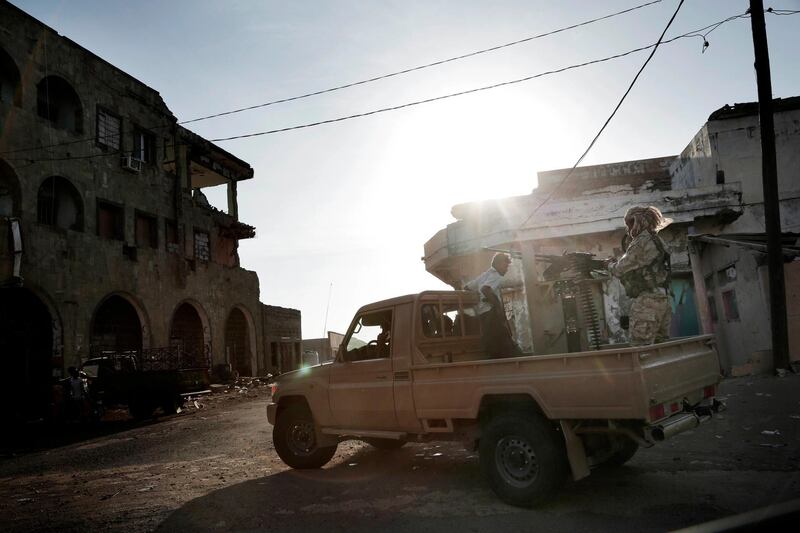The Trump administration’s nominee for it's next ambassador to Sana’a said Washington has started to plan for post-conflict recovery efforts, as Yemen's warring parties arrive in Sweden for peace talks scheduled to launch on Thursday.
Christopher Henzel, a foreign service diplomat who is nominated by US President Donald Trump for the role of Yemen ambassador, told Congress in his confirmation hearing on Tuesday that "there is no military solution to the conflict and it is a tragedy what's been happening in Yemen. The administration is working to end the hostilities.”
Mr Henzel who currently serves as the charge d’affaires at the US Embassy in Riyadh, urged lawmakers to put more emphasis on the post-conflict situation if a peace agreement is reached.
“Once a peace agreement is reached, experts project that there could be over one million former combatants in Yemen,” he said.
“To prepare for this, the [US State] Department is planning long-term engagement on post-conflict Security Sector Reform and Disarmament, Demobilization, and Re-integration needs.”
The nominee especially emphasized security cooperation between the Yemeni government and the Saudi-led coalition to help Yemeni security forces fight smuggling and terrorism.
Despite heavy criticism from lawmakers about the US role in Yemen and its logistical support for the Saudi-led coalition, Mr Henzel said the US must prepare "to have a strong presence in a unified Yemen, despite future threats that may be posed by the efforts of rebuilding and unification.”
He warned of the humanitarian and political ramifications of the Yemen war.
“This protracted war has exacerbated the world’s largest food insecurity emergency and cholera epidemic, and created an economic crisis,” he said.
Sounding the alarm, Mr Henzel saw the conflict as leading “to collapsed state institutions, local power vacuums and ungoverned spaces that the Houthis and terrorists have exploited to threaten important partners in the region, and has threatened US national security interests.”
He also said the war has complicated “our ongoing counterterrorism efforts and has facilitated Iran’s ambitions, further threatening regional stability.”
Mr Henzel criticized Iran’s role and its arming of the Houthis but saw a peace agreement with the Yemeni rebels as the only way forward.
Speaking at the same hearing was General Kenneth McKenzie Jr., the administration’s nominee to lead the US Central Command.
According to the Washington Post, Mr McKenzie told the Senate Armed Services Committee that American involvement in Yemen advances the goal of a peace deal between the Houthis and the Yemeni government.
“I believe our ability to participate and drive those discussions requires that we remain in contact with both [the United Arab Emirates] and the kingdom of Saudi Arabia,” he was quoted as saying.
The US Congress is due to vote next week on a bill that would end US role in the war. But in the interim, all eyes are on Stockholm where the US has consistently backed and pushed for the UN-led talks.
In a statement on Tuesday, the State Department called on all parties “to engage fully and genuinely, and cease any ongoing hostilities.”
“The people of Yemen have suffered far too long…the parties owe it to their fellow Yemenis to seize this opportunity” the statement read.





